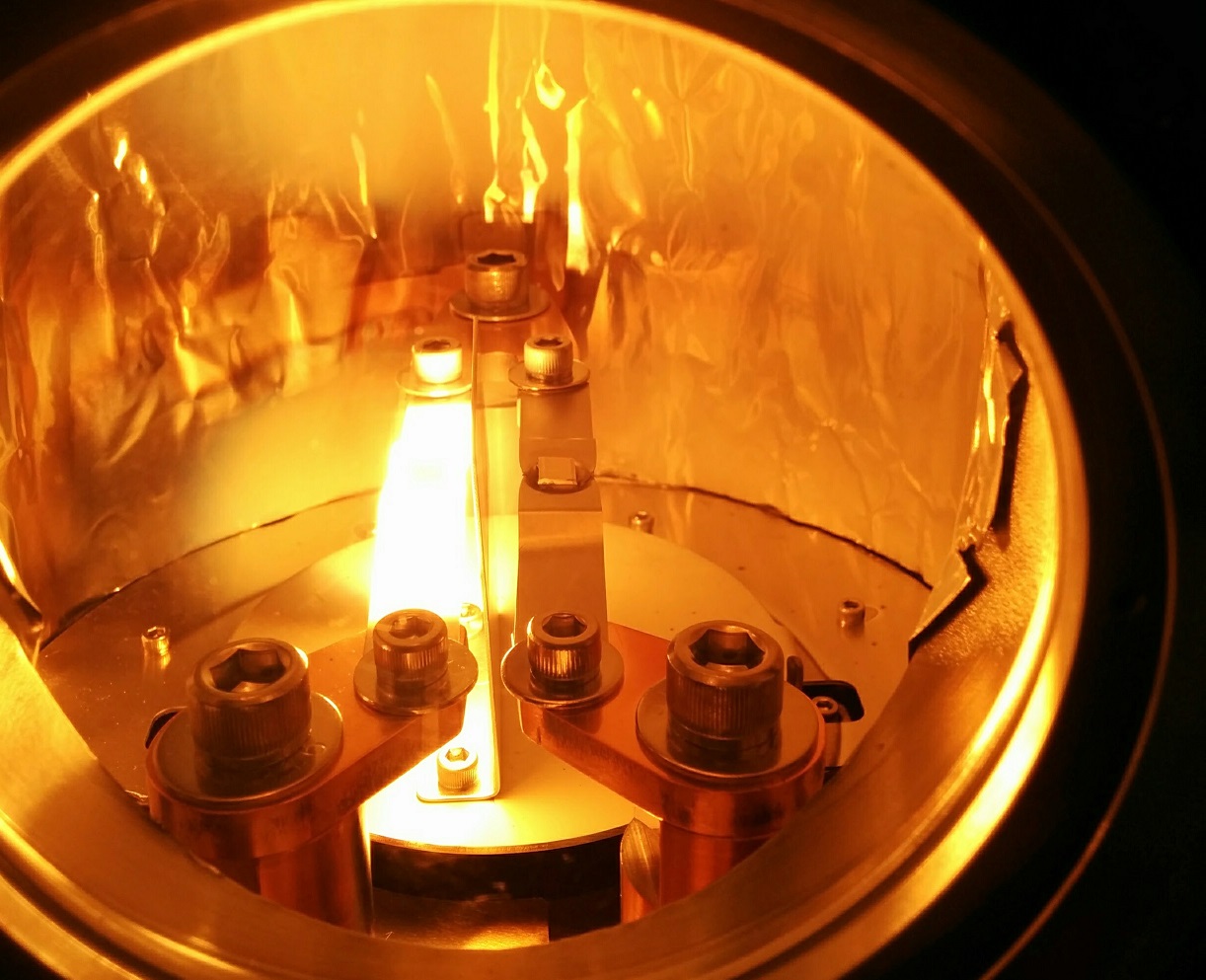-
Posts
232 -
Joined
-
Last visited
-
Days Won
27
Content Type
Profiles
Forums
Downloads
Gallery
Everything posted by Porter
-
Also looks like mupExpr Construct.vi would require Error Token and Error Position outputs.
- 172 replies
-
I will package this up in a mupGetLastError.vi which will return: - Error Code - Error Token - Error Position - Error Message I will also make a mupGetExpr.vi for completeness. But mupExpr class already keeps a copy of the expression (accessible via Expression property). mupExpr will get a top-level VI named Get_Last_Error.vi that will just call mupGetLastError.vi.
- 172 replies
-
Yup. 64-bit is supported. Linux too thanks to enserge. Anyone want to volunteer to test on mac (32-bit & 64-bit)?
- 172 replies
-
Not sure if openG builder and lvlib is still a problem (I don't use openG builder), but I do know that including gmath library increases application builder's executable build time by about 14 minutes (LV2015). I was about to reinvent as well but then I came across muParser: http://beltoforion.de/article.php?a=muparser LabVIEW API here:
-
FYI LabVIEW's formula parsing VIs are located within "NI_Gmath.lvlib". This means that even if you just use formula parsing, you need to load the entire Gmath library. This is a very big library! This becomes particularly noticeable when building a stand-alone executable. Here are the results from my application: With NI_Gmath as dependency - Exe size: 40.6 Mb - Build time: 22 minutes With muParser instead of NI_Gmath: - Exe size: 29.4 Mb - Build time: 8 minutes
- 172 replies
-
- 1
-

-
V1.1.0 released. I've decided to add get variable value to mupExpr. This allows you to retrieve the value of a variable that may have been modified by evaluation of the expression (the assignment operator "=" is supported). Examples for mupExpr and mupLib have been included in "<LabVIEW>\examples\LAVA\muParser\".
- 172 replies
-
Agreed. For compatibility sake, I won't modify the behavior of log(). It would just cause more confusion.
- 172 replies
-
In testing I noticed that muParser's log() function is base e, while excel's log() function is base 10. I usually expect log() to be base 10 because ln() is base e. Any opinions on this? Is it an engineering vs physics/mathematics convention issue? This behavior can be changed in muParser.cpp, line 297. I'm very tempted to change log() to refer to log10() instead of ln() and add an additional function lg() as an unambiguous log10() shorthand.
- 172 replies
-
I've re-built the package with VIPM 2014:
- 172 replies
-
- 1
-

-
I didn't realize that there was no vipm 2017 for linux. I will need to re-do the vipb file with vipm 2014. Have to find a computer that hasn't upgraded to vipm 2017 yet.
- 172 replies
-
Version 1.0.0 is available for download. It is a vip package. It will install muParser dlls to "<LabVIEW>\resource\" and mupLib, mupExpr to "<LabVIEW>\vi.lib\LAVA\muParser\". mupExpr VIs are located on the function palette under "Addons > LAVA > muParser" Documentation and examples have not been included yet. But you should be able to figure it out for now. The development version is available on github: https://github.com/rfporter/LV-muParser
- 172 replies
-
Thanks. That saves me some time. I will try to take a look at it this evening. I will also try to fix up the examples and make a vip package to install the mupLib and mupExpr into "<LabVIEW>\vi.lib\LAVA\" and the dlls to "<LabVIEW>\resource\".
- 172 replies
-
I don't really see the point of evaluating asynchronously either. But I do sleep better knowing that the muparser handle and variable pointers are wrapped in something that is also passed around by reference. If the muExpr DVR is valid, I can assume that its variable pointers and muparser handle are also valid. If the DVR is not valid, most likely the variable pointers and muparser handle are also not valid. An error will be generated. No harm done. I've added two polymorphic VIs to the class to aggregate the set variable value and eval functions. So finally, the top level api will look like: construct select single variable set variable value eval destruct Through these you are able to access all combinations of single variable, multi variable, multi expression, bulk mode. Note that bulk mode doesn't support multi expression. It just evaluates the last expression in the list. Latest version here: muParser_byRef2.zip
- 172 replies
-
Single element queue didn't perform as well as expected. Here is where I'm at with the DVR version: muParser_byRef.zip I've added bulk mode and multi result (multi expression) evaluation functions. Check the mupExpr Demo 3 and Demo 4. Not ready for another release. Hasn't been thoroughly tested yet.
- 172 replies
-
My intention for the mupExpr class is to abstract away the details of interfacing with the muparser dll. The developer shouldn't have to worry (too much) about the handle and variable pointers. I think that I can just obtain a queue or notifier reference in construct and release it in destruct. I will check if the reference is valid before trying to use the muparser handle or variable pointers. It is like an "is initialized" flag. That way I can generate an error instead of risk crashing labview if the muparser handle is not initialized or has been released somewhere. Splitting the mupExpr wire could be useful if you want to, for example, update variable values in one loop and evaluate in another loop
- 172 replies
-
Yup. I have a few more functions to implement for error handling. For now I just check for an error and return the error code.
- 172 replies
-
Thanks for pointing out that typo. I will definitely add the multi-variable multi-expression evaluation function to the mupExpr class. I am also planning to add bulk mode eval. The last thing I was working on was to put the mupExpr inside a DVR. I did this because I was worried about the case of splitting the mupExpr wire, calling destruct on one of them, then continuing to use the other. This could cause labview to crash because its variable pointers and muparser handle have been released. Of course, putting everything inside a DVR slows things down a bit but I think that it might be worth it to avoid a crash. The other option is single element queue(s) to store the variable pointers and muparser handle. Not sure if this would reduce the performance hit though. Haven't tried yet. Unfortunately I've been sidetracked by home renovations. I'm going to continue development on this project soon though.
- 172 replies
-
mupEvalMulti returns a pointer to an array of doubles. I'm using that as the source for MoveBlock. Then I initialize an array of doubles to the correct size and pass its array data pointer as the destination for MoveBlock. The destination pointer, I'm assuming, is allocated and disposed of internally by LabVIEW. The source pointer should be allocated and disposed of by muParser. So I should not use the DSDisposePtr at all in this case... ? The .so files included in the zip are the ones that you posted earlier. Maybe I messed them up when I renamed them? Or perhaps they break if loaded from "<LabVIEW>/resource" directory? Sorry I can't test any of this; I don't have access to LabVIEW for Linux.
- 172 replies
-
V0.0.5 is up. Added bulk mode and multiple return value functions to mupLib.
- 172 replies
-
V0.0.4 is up. I've named the muparser shared libraries as "libmuparser-[bitness]-lv.dll". For now, you need to manually copy them over to your "<LabVIEW>\resource" directory (or somewhere else in the search path). Now to concentrate on features... - Bulk mode - Multiple return values - Multiple type support (MUP_BASETYPE)?
- 172 replies
-
But it sounds like your "/usr/lib/x86_64-linux-gnu/libmuparser.so.2" is using std::string.
- 172 replies
-
How about these names: libmuparser-x32-ascii-lv.dll libmuparser-x64-ascii-lv.dll libmuparser-x32-ascii-lv.so.2.2.5 libmuparser-x64-ascii-lv.so.2.2.5 I will assume that they will be located in the "<LabVIEW>\resource" directory. Note that a major difference between the modified version and a possible standard version of libmuparser is the character encoding. By default, Visual studio 2013 compiles muparser with _UNICODE preprocessor macro. This does not play nice with LabVIEW's strings.
- 172 replies
-
I also prefer the statically linked dll because I can imagine that no one will remember to include the correct DLL or even know where to find the DLL when they build their exe. However, since this library is under development, I think that it is wise to stick with the in-lined mupLibPath vi for now. When we get closer to V1.0 perhaps it will be worth putting in the extra effort to setup a conditional disable structure around each CLN.
- 172 replies
-
- 1
-

-
Of course this will eventually be distributed as a vip not a zip.
- 172 replies
-
Version 0.0.3 uses library name instead of path.
- 172 replies


